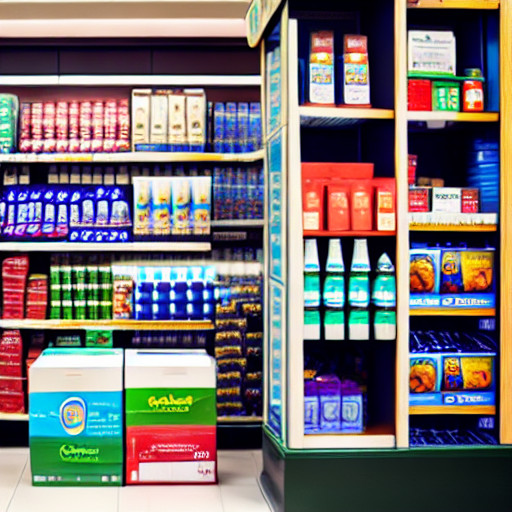Methane leaks from oil and gas operations have long been a thorn in the side of climate activists, but now there is hope on the horizon. The US regulator’s promise to crack down on methane emissions could be a game-changer for climate change, potentially reducing greenhouse gas emissions by millions of tons each year. In this blog post, we’ll explore why this promise is so significant and what it means for our planet’s future. So buckle up, and let’s dive into the world of methane regulation!
What is methane?
Methane is a powerful greenhouse gas that traps heat in the atmosphere and contributes to climate change. Though it’s not as abundant as carbon dioxide, methane is much more efficient at trapping heat, making it a significant contributor to climate change.
Methane is produced when organic matter decomposes without oxygen, such as in landfills or wetlands. It can also come from leaks in natural gas pipelines, coal mines, and oil wells. Methane emissions from human activity have increased by about 150% since 1750.
The good news is that methane doesn’t stay in the atmosphere for very long—unlike carbon dioxide, which can linger for centuries. That means we can take action to reduce methane emissions and slow the warming of our planet.
In 2018, the United States Environmental Protection Agency (EPA) proposed new regulations to crack down on methane leaks from oil and gas facilities. If these regulations are enacted, they could be a game-changer for climate change.
How does methane contribute to climate change?
Methane is a powerful greenhouse gas, and its contribution to climate change has been underestimated. A new study by the Environmental Defense Fund (EDF) finds that methane accounts for nearly one-fifth of the warming we are currently experiencing.
The EDF’s analysis shows that cutting methane emissions would have an immediate and significant impact on slowing climate change. The study found that if methane emissions were reduced by 45% over the next decade, it would be equivalent to taking all cars and trucks off the road globally for a year.
Reducing methane leaks from oil and gas operations is essential to meeting our climate goals, and the EDF’s report provides a roadmap for how to do so. The first step is for regulators to crack down on methane leaks, which will send a strong signal to industry that cutting methane emissions is a priority.
The US Environmental Protection Agency (EPA) recently announced plans to issue new rules aimed at reducing methane leaks from oil and gas operations. This is a welcome move, but more needs to be done in order to significantly reduce methane emissions. For example, the EPA’s proposed rules do not cover existing sources of methane pollution, such as landfills and coal mines. In addition, the regulations only apply to new or modified sources of pollution, meaning that existing sources will continue to leak methane unchecked.
The EDF’s report includes recommendations for how the EPA can strengthen its proposed rules in order to make a real dent in methane emissions.
The scale of the problem
According to the EPA, methane accounts for approximately 9% of all US greenhouse gas emissions. But a growing body of evidence suggests that the true scale of the problem may be significantly underestimated.
A recent study published in the journal Nature found that US methane emissions are up to 60% higher than what the EPA has reported. The study’s authors suggest that much of this hidden methane is coming from leaks in natural gas infrastructure.
This is a huge problem, because methane is a powerful greenhouse gas – over 80 times more potent than carbon dioxide in the short-term. Reducing methane emissions is therefore critical to slowing down climate change.
The good news is that the US regulator appears to be taking the issue seriously. The EPA has recently proposed new regulations that would crack down on methane leaks from natural gas infrastructure. If these regulations are enacted, it could be a major step forward in the fight against climate change.
Why this is a game-changer
It’s no secret that methane is a powerful greenhouse gas. In fact, it’s about 84 times more potent than carbon dioxide over a 20-year timeframe. But until recently, the United States hasn’t had any federal regulations in place to prevent methane leaks from occurring.
That all changed when the Environmental Protection Agency (EPA) announced its intention to crack down on methane leaks. The EPA’s new rules will require oil and gas companies to find and fix methane leaks at their facilities.
This is a big deal because it will finally give some teeth to efforts to reduce methane emissions. And that’s important, because methane accounts for about 10% of all human-caused greenhouse gas emissions.
The EPA’s new rules are a game-changer because they will help to slow down climate change. And that’s something we can all celebrate.
What needs to happen next
In order for the US regulator’s promise to crack down on methane leaks to have a real impact, a few things need to happen. First, the EPA needs to put forth strong regulations that will require companies to take action to prevent and reduce methane leaks. Second, Congress needs to pass legislation that will give the EPA the funding and authority it needs to properly enforce these regulations. Finally, state and local governments need to step up and do their part to ensure that companies are following the new regulations. If all of these pieces come together, then we stand a chance of making a real dent in methane emissions and helping to mitigate climate change.
Conclusion
This promise by the US regulators to crack down on methane leaks is a game-changer in the fight against climate change. It’s essential that countries around the world follow suit and implement similar regulations if we are to make progress towards lowering global emissions of greenhouse gases. With more stringent regulations, companies will be incentivized to invest in technologies that reduce their emissions, leading us closer to a future with lower levels of air pollution and a healthier planet for everyone.










